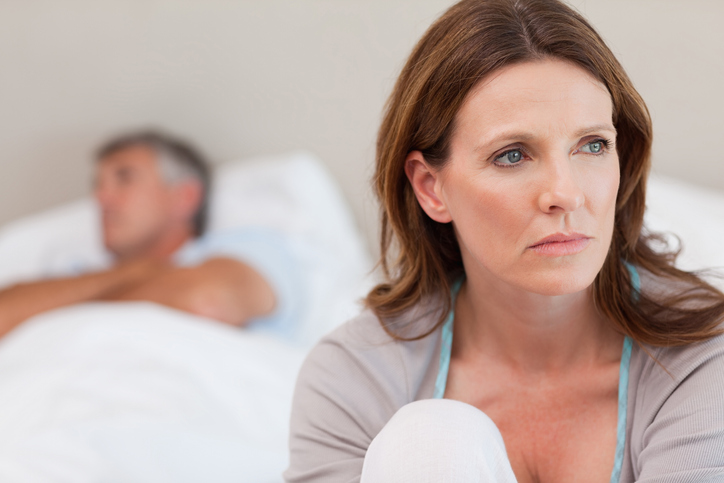Why Older Women Have Less Sex: It’s Not As Simple As You Think
It’s not easy to talk about, but there can be a number of reasons you may not have considered.

I get a number of enquiries from women who are concerned that once in menopause, or post menopause, their sex lives have changed, and not for the better.
Recently there has been a great interest in testosterone and its impact on women’s sex drive, but actually it is progesterone that is behind this. Also, because of the side-effects that can be associated with testosterone, it is not the best place to start.
More than biology is at play when it comes to why older women have less sex as a number of psychological factors contribute to the drop in libido.
What’s going wrong?
A study was published online in Menopause, the journal of the North American Menopause Society (NAMS) by Dr. Stephanie Faubion, NAMS medical director.
Previous research has focused mostly on biological causes of reduced sexual activity in older women, such as hot flushes, sleep disruption, vaginal dryness and painful intercourse.
This new study included nearly 4,500 postmenopausal women in the United Kingdom enrolled in a trial of ovarian cancer screening.
Before the start of annual screening, about half of the women were sexually active, but there was a decrease in all areas of sexual activity over time.
Sexual activity was less frequent, not as pleasurable, and more uncomfortable.
Factors that influenced the decline in sexual interest and activity included: body image concerns, self-confidence, perceived desirability, stress, mood changes and relationship issues.
Other factors
Other commonly reported reasons for decreased sexual activity included: partner’s medical condition, partner’s sexual dysfunction, the woman’s own health problems, menopause-related symptoms and prescribed medications.
Lack of libido is also commonly experienced at menopause and the most commonly reported reasons were: relationship problems, logistics and perceptions of ageing.
Only 3% of the women in the study described positive sexual experiences, and only 6% sought medical help for sexual problems.
Helpful information
Sadly many women do not seek help either from their doctor, or alternative sources, but it is available.
For painful sex oestrogen is required so a combined hormone cream with both progesterone and oestrogen will help. If the problem is vaginal atrophy, rather than dryness, then a local oestrogen cream is needed and you can balance this with Serenity, which is progesterone only, to keep hormones healthy.
If the issues are more emotional or psychologically related then counselling can often make a difference. If the issues are medically related for you, or your partner, then seeing your doctor is the best first step.
If the problem is low libido then progesterone is the hormone behind sex drive in women so supplementing with Serenity will help and did you realise your diet can also make a difference?
This article has some helpful suggestions:
https://anna.blog.wellsprings-health.com/best-foods-to-boost-libido/


















